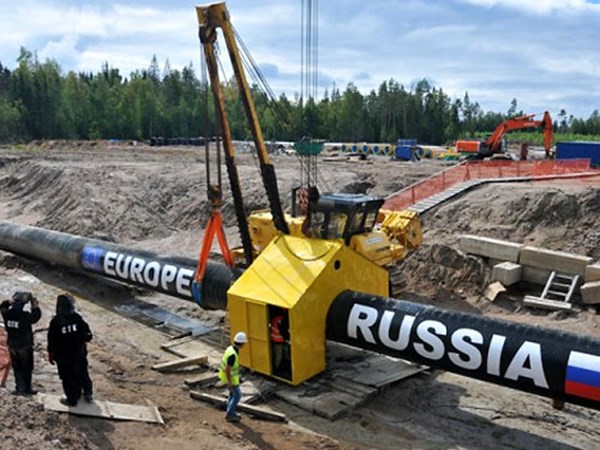Sweden explains why it consented to construction of Nord Stream 2 pipeline
In an article published on the Ukrainian news site European Pravda, Swedish Ambassador to Ukraine Martin Hagstrom explained why his country authorized the construction of the Nord Stream 2 gas pipeline in its exclusive economic zone.
The diplomat explained that, according to the project specifications, the gas pipeline would be laid outside of Sweden’s territorial waters, i.e. in international waters. In this regard, the government of the Scandinavian monarchy had to comply with the UN Convention on the Law of the Sea. According to this document, all countries have the right to lay undersea cables and pipelines in the continental shelf outside a coastal state’s territory. The pipelines’ routes are only determined after consent is given by the coastal state, which cannot obstruct the construction of such objects.
According to Hagstrom, Russia filed an application for the construction of Nord Stream 2 in September 2016, and Sweden immediately began investigating the project’s possible effects on the surrounding environment.
“For Sweden, adhering to the rules of international law is not just a legal obligation, it is also a fundamental security interest. We expect the same approach from all other countries. A strong stance in support of international law is not only the basis of Swedish policy, but also the EU’s policy with respect to Russian aggression against Ukraine,” the Swedish ambassador writes.
He emphasized that Sweden does not have any economic interests in the gas pipeline project. The diplomat gave his assurance that his country plans to stop using fossil fuels entirely in future. He added that Sweden understands and in many respects shares in the criticism of the Nord Stream 2 project.
On June 7, the Swedish government gave its approval for the construction of Nord Stream 2. Swedish Minister of Enterprise and Innovation Mikael Damberg remarked that neither international law nor Swedish law entitled Stockholm to decline the application. Nevertheless, the monarchy observed that the project may go against the EU’s goals with respect to energy. The pipeline had already been approved by Finland and Germany.
The Nord Stream 2 project entails the construction of two gas pipelines from Russia’s coast through the Baltic Sea to Germany, passing through the territorial waters of Russia and Germany, and through the exclusive economic zones of Finland, Sweden and Denmark. The project’s total predicted capacity is 55 billion cubic meters per year.
Ukraine is actively opposing the construction of the new gas pipeline. President Petro Poroshenko is certain that the pipeline will not be built. He believes it is “absolutely political”, “has no economic component”, and is purely intended to harm Ukraine. The Ukrainian president says that the project can be stopped through “joint efforts”.
